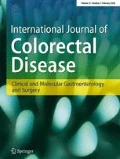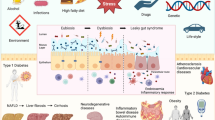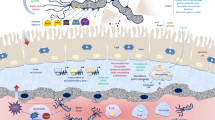Abstract
Background and aims. Luminal bacteria have been implicated in the pathogenesis of inflammatory bowel diseases. Exposure of intestinal epithelial cells (IEC) to bacterial components potentially initiates intestinal inflammation by release of chemokines and recruitment of inflammatory cells. We analyzed receptor expression and signaling pathways involved in activation of human primary IEC and carcinoma-derived cell lines by lipopolysaccharide (LPS).
Materials and methods. HT-29/p, HT-29/MTX, and Caco-2 cells were stimulated by LPS. IL-8 content in supernatants was analyzed by ELISA, and expression of CD14, Toll-like receptor (TLR) 2 and TLR 4 was determined by RT-PCR. Presence of TLR 4 protein was assessed by western blot analysis. LPS response was modulated by sCD14, LPS-binding protein, neutralization of CD14, and inhibitors of early signal activation.
Results. LPS dose-dependently induced secretion of IL-8 in undifferentiated HT-29/p cells while Caco-2 and permanently differentiated HT-29/MTX cells were unresponsive. Differently to HT-29/MTX, both HT-29/p and Caco-2 cells constitutively expressed transcripts for CD14. However, CD14 was not required for LPS-mediated induction of IL-8 in HT-29/p cells since neutralizing anti-CD14 antibodies left IL-8 levels unchanged. Unresponsiveness of Caco-2 and HT-29/MTX cells to LPS persisted in the presence of sCD14 and/or LPS-binding protein. Neither cell line expressed TLR 2 transcripts while only responsive HT-29/p cells expressed TLR 4 mRNA and TLR 4 protein. Butyrate down-regulated TLR 4 expression and significantly diminished LPS-dependent IL-8 secretion. Inhibition of G protein dependent kinase activation reduced IL-8 levels to 50%; the phosphatidyl-inositol-3′-kinase inhibitor LY294002 abrogated the response.
Conclusion. Responsiveness of IEC lines to LPS is positively correlated with TLR 4 expression. Strategies targeting TLR 4 expression or TLR 4 mediated signaling may antagonize IEC activation by LPS.
Similar content being viewed by others
Author information
Authors and Affiliations
Additional information
Electronic Publication
Rights and permissions
About this article
Cite this article
Böcker, U., Yezerskyy, O., Feick, P. et al. Responsiveness of intestinal epithelial cell lines to lipopolysaccharide is correlated with Toll-like receptor 4 but not Toll-like receptor 2 or CD14 expression. Int J Colorectal Dis 18, 25–32 (2003). https://doi.org/10.1007/s00384-002-0415-6
Accepted:
Issue Date:
DOI: https://doi.org/10.1007/s00384-002-0415-6




